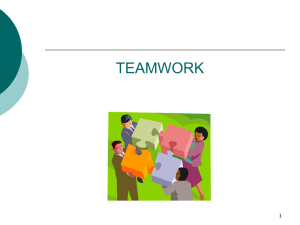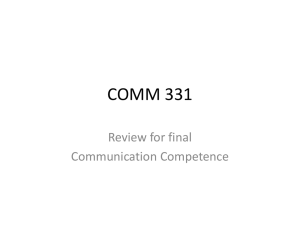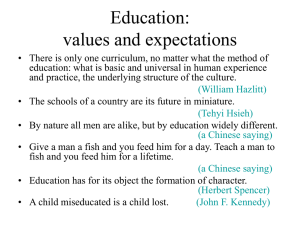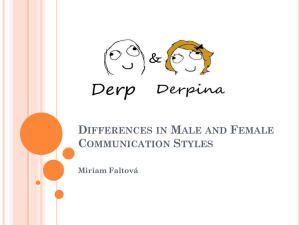Profiling for success * Learning styles
advertisement
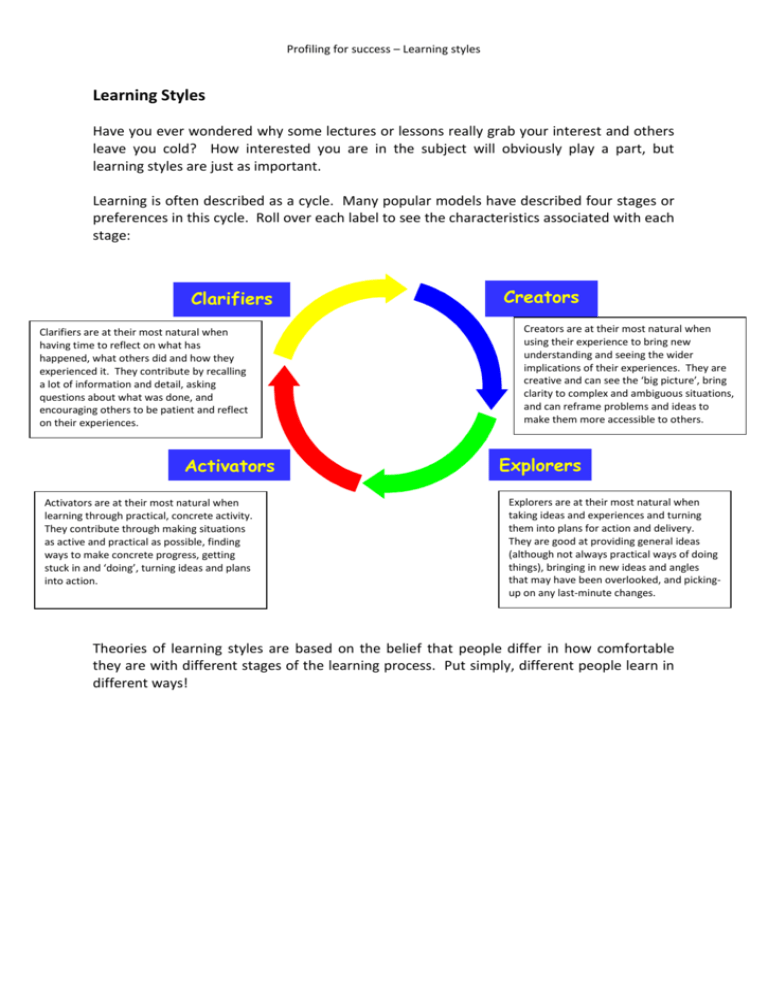
Profiling for success – Learning styles Learning Styles Have you ever wondered why some lectures or lessons really grab your interest and others leave you cold? How interested you are in the subject will obviously play a part, but learning styles are just as important. Learning is often described as a cycle. Many popular models have described four stages or preferences in this cycle. Roll over each label to see the characteristics associated with each stage: Clarifiers Clarifiers are at their most natural when having time to reflect on what has happened, what others did and how they experienced it. They contribute by recalling a lot of information and detail, asking questions about what was done, and encouraging others to be patient and reflect on their experiences. Activators Activators are at their most natural when learning through practical, concrete activity. They contribute through making situations as active and practical as possible, finding ways to make concrete progress, getting stuck in and ‘doing’, turning ideas and plans into action. Creators Creators are at their most natural when using their experience to bring new understanding and seeing the wider implications of their experiences. They are creative and can see the ‘big picture’, bring clarity to complex and ambiguous situations, and can reframe problems and ideas to make them more accessible to others. Explorers Explorers are at their most natural when taking ideas and experiences and turning them into plans for action and delivery. They are good at providing general ideas (although not always practical ways of doing things), bringing in new ideas and angles that may have been overlooked, and pickingup on any last-minute changes. Theories of learning styles are based on the belief that people differ in how comfortable they are with different stages of the learning process. Put simply, different people learn in different ways! Profiling for success – Learning styles Learning styles – Why understanding is important The theory of learning styles tells us that learning should be maximised when the way in which we are taught matches our preferred style. When learning experiences do not match our preferred style we find learning more difficult or incomplete. Understanding your learning styles therefore helps you to: recognise the ‘style’ of different learning situations maximise learning when your preferred style matches the learning environment recognise learning environments that you may find difficult develop strategies to help deal with difficult learning environments shape your personal learning environments and strategies to make learning most effective Remember, we can all learn in all environments. Sometimes we just need to do things a bit differently or be prepared to work a little harder! Profiling for success – Learning styles Learning to work with others Learning is an essential part of many modern jobs. Learning styles therefore tells us something very important about how we approach work and how we work with others with different styles. Remember, the ability to work constructively with others is a skill valued very highly by many top organisations. Learning styles – Becoming a better learner and beyond Here is the learning cycle again. Roll over the different learning styles to find out what environments they are likely to find more difficult and see a few tips for dealing with these. Clarifiers Clarifiers find it more difficult to learn in situations requiring the bringing together of experience, reflections and ideas to develop a plan of action and delivery. In these situations they need to: be flexible in the way they approach the task anticipate other possibilities and plan for them Activators Activators find it more difficult to learn in situations requiring use of experience to create new understanding draw wider implications of learning. In these situations they need to: consider all possibilities – not just the first one that comes to them think ahead to see the longer-term implications Creators Creators find it more difficult to learn through engaging in practical, concrete activity. When faced with practical learning experiences they need to make sure they: focus on practicalities and the ‘hear and now’ avoid over-complex solutions Explorers Explorers find it more difficult to learn in situations requiring reflection on what has happened, reviewing what they have done and what they experienced. In these situations they need to: keep focused on the past experience, not future possibilities be patient and not too keen to move on Developing your style of learning to cope with different environments takes time and effort, but is an essential skill for both your academic study and career development. Try the following: identify the ‘style‘ of different learning environments you experience work on the development suggestions in the learning styles reports when starting new learning tasks, think about what styles will be most productive – don’t just use your preferred style when working in groups, think about how each person contributes in terms of their learning style think about your learning style in group tasks – what effect does this have on others?

